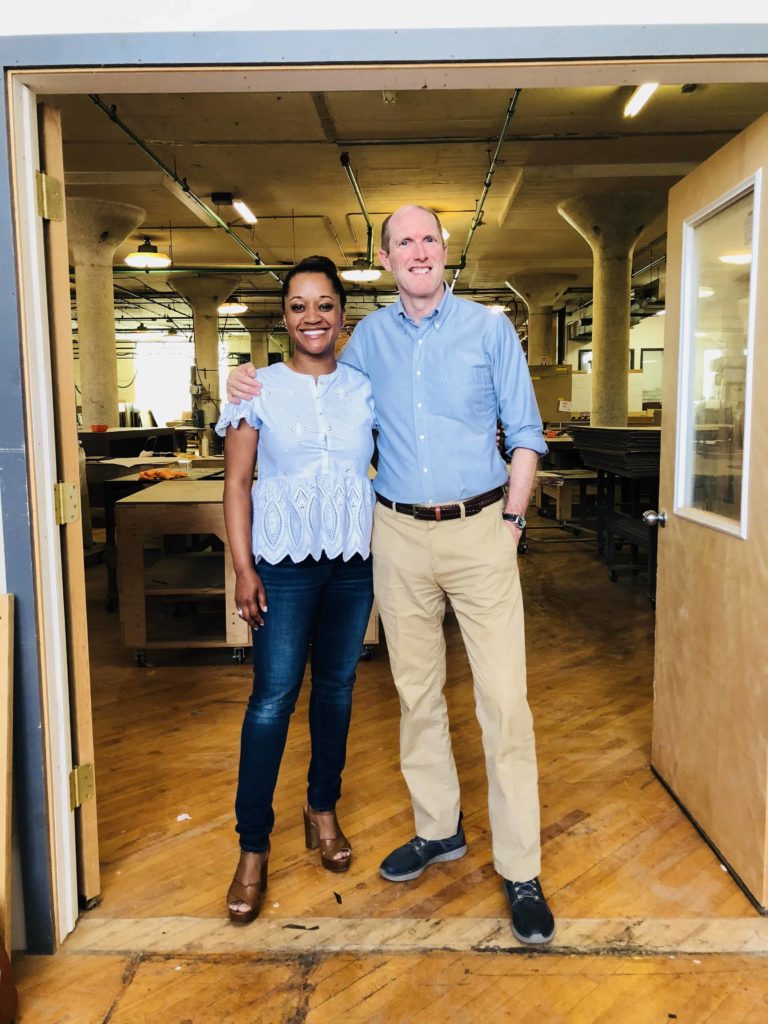What Happens When Small-Business Owners Meet? Big Ideas
October 5, 2018

As a lifelong learner, I’m always hungry to devour knowledge in its many forms. Years ago, I used to read the NYTimes.com Small Business blog featuring a man by the name of Paul Downs. I didn’t look into the details of his business. I just knew that he was a woodworking craftsman who would detail life as an entrepreneur, but from a completely honest perspective.
Years later, his book, Boss Life: Surviving My Own Small Business, popped up on a book summary and I was reminded of him. I read the book and became completely enamored with, again, his level of honesty. From his special-needs son to his cashflow issues, there was nothing taboo. That is what differentiated his book from others. He was willing to really dig into the ugly side of business ownership, something that other entrepreneurs steer clear of.
After reading that book, I had to know what happened in the end. So I went online to reach out … only to find that his company was in Bridgeport, PA, eleven miles from our offices here at Electro Soft. I sent Paul an email. He responded right away and even invited me to come to his facility to meet some of the people in the book.
Both Paul and I had to reschedule, but we finally made the time to meet. I drove out to his company. It was housed in an old brick building, subdivided into workspaces. There was an old-fashioned freight elevator with an operator who gave me a ride up to the 4th floor, where Paul Downs Cabinetmakers occupies an entire floor.
With no front desk or sign to guide me, I randomly wandered through the office until I found someone to direct me to Paul. Immediately, he invited me on a tour to meet his staff and to see firsthand the workshop that I had caught a glimpse of from pictures throughout the book.
As I was introduced to everyone, I noticed a few changes from the book. First, he had since hired someone to handle all online collateral, which I thought was brilliant. The internet draws most of his traffic and Google won’t crawl a stale website, so fresh content is a must.
Second, the names of the people he referenced in the book were definitely changed to protect the innocent. But there they were — sitting in the office with the sliding glass door, which is referenced in the text.
The workshop was huge. It had exposed brick, and hardwood floors and everything was coated with the sweet smell of freshly cut wood. Paul explained some of his techniques, and the reason he uses veneers: solid wood expands and contracts, so the veneers make for a better product. He showed me incredibly detailed and well-crafted projects that were designed for some of the world’s top businesses.
“No man is an island, entire of itself; every man is a piece of the continent, a part of the main.” – John Donne
After the tour, we went back to his office. We chatted candidly about our businesses and shared our issues and goals. I asked him detailed questions about Google Ads, which he still uses, only with a drastically reduced budget. I asked him about the CEO peer group Vistage — he is still a member and offered to connect me with the leader. I asked him about his family — everyone is doing well.
He spent the rest of our time giving me a “behind the kimono” view of his business. It was an incredible display of camaraderie; a recognition of how lonely and difficult life can be in small business. But I can also say that this camaraderie is the magic of small business. Paul Downs hears from people from all over the world who have read his book — and he takes the time to speak and connect with each and every person.
That’s because he understands what it’s like to be a small-business owner. His journey to transform his struggling business into a viable entity, and his message of hope, resonate with so many people who dream of success.
If you’re a small-business owner, you should take the time to reach out to other small-business owners, too. Network with them; find out what they’ve learned, and share your own knowledge and challenges. Even if you’re both in completely different types of business — like carpentry and electronics contract manufacturing — one of you might have a solution to help the other. At the very least, you can commiserate over your struggles.
Because in the end, we learn more from each other than we’d ever learn on our own. And by forging these types of reciprocal relationships, we can ensure that as our businesses grow, so do we.
